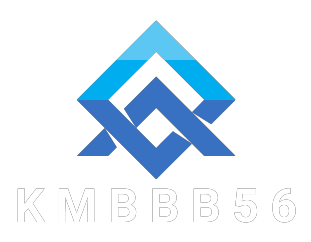As small businesses navigate the complexities of modern markets, Customer Relationship Management (CRM) systems have become essential tools for managing interactions with customers and streamlining operations. Choosing the right CRM system can significantly impact a business’s efficiency, customer satisfaction, and overall growth ccaas. This guide will explore what CRM systems are, their benefits, and how small businesses can select the best CRM solution to meet their needs.
What is a CRM System?
A CRM system is a technology suite that helps businesses manage relationships and interactions with current and potential customers. It supports sales management, delivers actionable insights, integrates with social media, and facilitates team communication. By organizing information about customers, CRM systems enable businesses to build strong relationships and maximize sales opportunities.
Benefits of CRM Systems for Small Businesses
Improved Customer Relations
A CRM system allows small businesses to treat every customer as an individual by maintaining a repository of customer preferences, purchase history, and interactions. This personal touch can lead to increased customer satisfaction and loyalty.
Increased Sales
CRM systems help businesses streamline their sales process, build a sales pipeline, automate key tasks, and analyze sales data. This leads to shorter sales cycles, higher sales productivity, and the ability to upsell and cross-sell more effectively.
Enhanced Internal Communication
By providing a single platform for all customer information, a CRM system ensures that every team member is on the same page. This improves coordination within the team and helps provide a unified approach to the customer experience.
Greater Efficiency
Automating routine tasks, such as data entry and lead or service case routing, with a CRM system, allows businesses to spend more time on providing high-quality personal interactions. This operational efficiency is crucial for growth and scalability.
Actionable Insights
With built-in reporting tools and dashboards, CRM systems offer insights into customer behavior, sales trends, and marketing effectiveness. Small businesses can use this data to make informed decisions about where to allocate resources for maximum return.
Choosing the Right CRM System for Your Small Business
Assess Your Needs
Before selecting a CRM, identify your business’s specific needs. Consider what processes you want to improve, your main goals for the CRM, and who will be using the system. This will help you choose a CRM with features that align with your objectives.
Consider Scalability
Choose a CRM system that can grow with your business. Even if your needs are simple now, think about future needs, such as more complex data analysis or integration with other systems.
Evaluate Ease of Use
The CRM should be user-friendly to ensure that your team will actually use it. Look for a CRM that provides an intuitive interface and doesn’t require extensive training.
Compare Costs
CRMs come in various pricing models. Some might charge per user or per feature, while others offer a flat monthly rate. Consider the total cost of ownership, including setup, customization, and support.
Check for Integrations
Your CRM should seamlessly integrate with other tools your business uses, such as your email platform, social media, or accounting software. This connectivity ensures that you can continue to use all your tools effectively together.
Read Reviews
Check out reviews from other small business owners to see how they’ve implemented and used different CRM systems. This can provide real-world insights into the pros and cons of each system.
Request a Demo
Most CRM providers offer a free trial or demo. Use this opportunity to see how well the CRM fits with your business operations and meets your needs.
Popular CRM Systems for Small Businesses
- HubSpot: Known for its user-friendly interface and robust free version.
- Salesforce Essentials: Offers extensive features with a focus on scalability.
- Zoho CRM: Good for businesses looking for an affordable, feature-rich option.
- Freshsales: Great for businesses that want advanced sales force automation.
Conclusion
Selecting the right CRM system is a strategic decision that can profoundly affect a small business’s operational efficiency and customer relationships. By considering your specific needs, potential for growth, ease of use, cost, integrations, and other businesses’ experiences, you can choose a CRM that not only fits your current needs but also supports your business as it grows. Investing in a CRM is investing in your business’s future.
